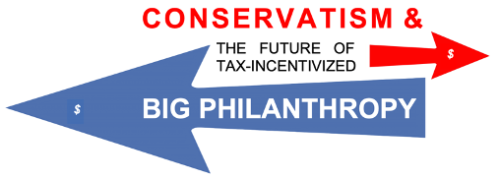
Julius Krein is editor of the American Affairs quarterly journal, which he founded in 2017. Last month, Krein contributed to The Giving Review symposium of articles about “Conservatism and the Future of Tax-Incentivized Big Philanthropy.” In his contribution, “What do conservative donors want?,” he dauntlessly describes conservative philanthropy’s current predicament—and, equally dauntlessly, urges it to be self-critically clear and honest about its position, as well as disciplined in pursuing its issues and aims.
Krein was kind enough to join me for a recorded conversation last week. In the just less than 19-and-a-half-minute video below, we wide-rangingly talk about the intellectual and policy disarray within conservatism, the place and role of social and cultural issues within grantmakers’ conception of conservatism, the differences between conservative and liberal big givers, the importance of detailed policy research in addition to highbrow intellectualism for conservatism, and some of the strong reaction to his symposium piece.
Krein and Hartmann
Conservatism “seems to be in a state of intellectual and policy disarray,” Krein told me, later adding that “I think you have to attribute some of the blame for that to the kind of directionless nature of conservative philanthropy for the last few years, maybe decades.
“On the one hand, conservative donors seem to know what they want, but they can’t admit it,” he continued. “In another respect, they don’t really know what they want, and that’s particularly true with respect to cultural-agenda items.
“You have a number of very large donors,” according to Krein,
who are outspoken, I think, in their desire to basically eliminate most if not all of the conservative cultural baggage—to use perhaps the term they would use to describe it—and essentially get rid of social conservatism and just focus on low taxes or whatever. Then you have another group of donors that seem very interested in social conservatism, though I think it’s worth pointing out that they never really want to use the government or spend any money for it.
His article, he said, is “a request for donors to figure out what they want a little bit more proactively if they want to have a conservative movement or political right that’s not incoherent and ineffective.”
Given conservative philanthropy’s disadvantage in terms of mere dollar-amount size to liberal and progressive philanthropy, Krein thinks, if you’re a conservative grantmaker, “you have to think about what you actually can do, and right now they seem to be kind of operating like a late-stage private-equity fund when they should be operating like an early-stage” venture-capital fund.
If you’re only going to be able to give smaller amounts, then you got to look to be an angel investor and find new things where your smaller amounts can have a big impact, not just give the same amount of money to the same group of friends you’ve been giving it to you for 30 years, regardless of performance.
On the right, he notes, “people seem very interested in the branding and this kind of general sort of ‘Are we conservative? What is conservatism?’ question—much less interested in actually formulating or implementing a serious policy agenda.” And as for the left, “What I do think is clear to me … is that the left foundations—I certainly don’t agree with the objects of their goals, in many cases—but they are actually formulating their own independent set of agendas independent of, say, left billionaires.”